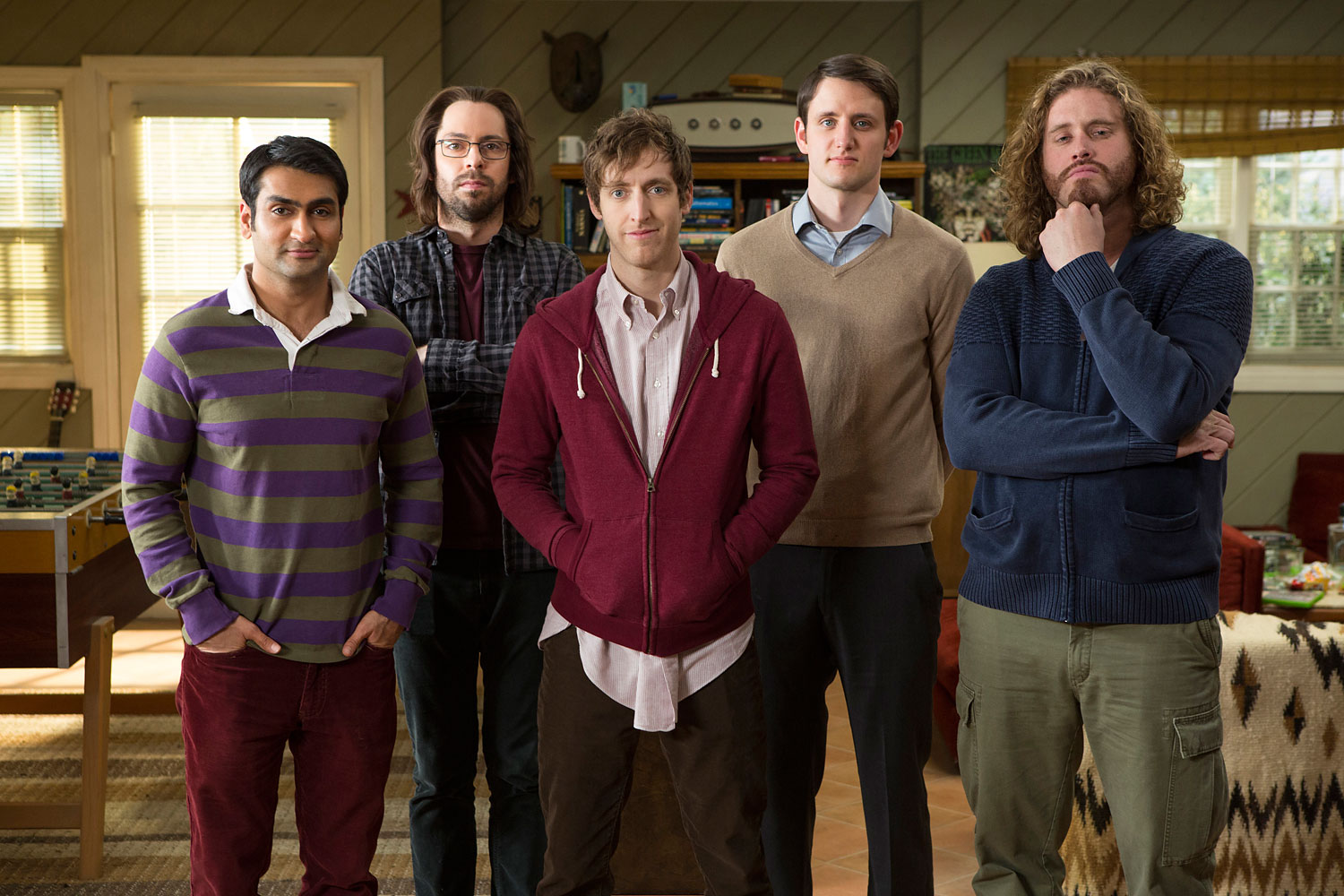
It’s clear that Hollywood has a crush on Silicon Valley. Among the recent evidence: last year’s Jobs movie (Ashton Kutcher is Steve Jobs!), The Internship (a buddy comedy set at Google) and Betas (an Amazon Instant Video original series about app developers set in San Francisco’s SOMA neighborhood–not the Valley, but close enough).
Of course, loving something is not the same as understanding it. None of these projects really captured the spirit of the tech industry; in various ways, they felt off in ways their creators probably didn’t realize. At least that’s my take, as a guy who makes his living covering this stuff. (I’m sure that anybody who writes about the plumbing business isn’t impressed with Hollywood’s treatment of plumbing, either.)
But now there’s yet another piece of entertainment about the Valley. This one’s called–wait for it–Silicon Valley. It’s an eight-episode HBO comedy co-created by Mike Judge, whose satirical credentials (Office Space, Idiocracy, King of the Hill, Beavis and Butt-Head) are impeccable. It’s both the most laugh-out-loud funny portrayal I’ve seen of the Valley, and the most real one.
HBO rolled out its red carpet for a Silicon Valley premiere in Silicon Valley last night, screening the first two episodes at the historic Fox Theatre in downtown Redwood City. Judge and his collaborators, including the cast, mingled with real citizens of the valley such as Tesla founder Elon Musk and TechCrunch creator Mike Arrington.
In the series, a bunch of guys–in the first two episodes, at least, they’re all guys–are trying to launch a digital-music startup called Pied Piper, run out of a house in Palo Alto. They’re archetypal characters, but don’t feel like stereotypes; I could imagine running into any of them at a real Palo Alto startup. Especially Thomas Middleditch, who plays the naive, gawky, hyper-smart creator of Pied Piper’s technology, and the late Christopher Evan Welch as a venture capitalist.
(I also like Josh Brener, who plays another member of Pied Piper’s startup team, but every time I saw him in the first two episodes, I thought of both his Samsung commercials and his role as a new Google recruit in The Internship. What is it about this actor that makes people want to cast him as a tech industry nerd, over and over and over?)
There are some nods to actual Valley institutions in the first two episodes: Google’s Eric Schmidt shows up briefly as himself, for instance. But I enjoyed the fictionalized touches more, such as a suspiciously Google-like company called Hooli. Its willfully eccentric campus is no goofier than the Googleplex we actually have. I hope people watching at home realize that virtually no comedic exaggeration is involved.
The real Silicon Valley is weird, as it must be to generate the new ideas that keep it relevant. But it’s also prosaic and repetitive in many ways; a lot of the conversation in real startups boils down to matters of math and money.
Silicon Valley gets both aspects of Silicon Valley right: It’s perceptive when it’s being wacky, and it’s perceptive when the characters are talking about lossless compression and consumer-facing applications, and trying to write a business plan for Pied Piper, a plot point which takes up much of the second episode.
Like Office Space, the show draws inspiration from Mike Judge’s own experiences working at a tech startup in the Valley in the late 1980s. (He quit after less than three months.) Either some things about startup culture haven’t changed in all that time, or Judge and his co-conspirators worked hard to capture the scene as it exists today. Probably a bit of both.
See below for HBO’s trailer for season one–or see the show for yourself starting on April 6. I don’t have HBO myself, but I’ll bet I’m not the only resident of Northern California who’s ready to pony up just to keep tabs on this series.
More Must-Reads From TIME
- What Student Photojournalists Saw at the Campus Protests
- How Far Trump Would Go
- Why Maternity Care Is Underpaid
- Saving Seconds Is Better Than Hours
- Welcome to the Golden Age of Ryan Gosling
- Scientists Are Finding Out Just How Toxic Your Stuff Is
- The 100 Most Influential People of 2024
- Want Weekly Recs on What to Watch, Read, and More? Sign Up for Worth Your Time
Contact us at letters@time.com